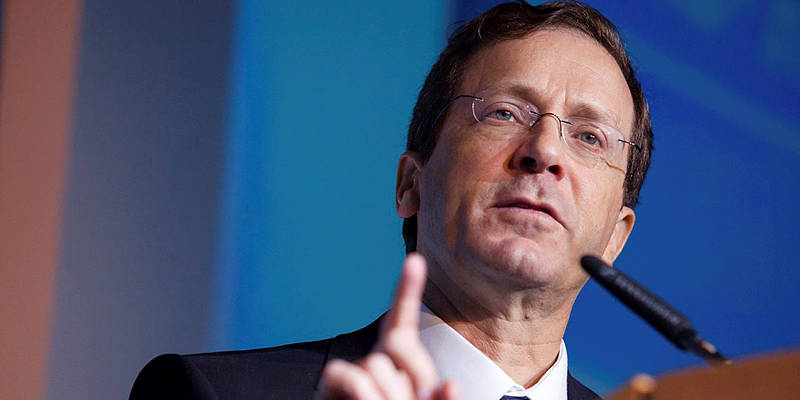“I strongly believe in the strength of Israeli society and its ability to overcome difficult challenges,” the president said.
By United with Israel Staff
As part of his “Change Your Words, Change the World” program launched earlier this month, President Isaac Herzog hosted a discussion on Thursday with Israelis from diverse backgrounds, assuring them that “democracy has not been eliminated,” Arutz-7 reported.
For the past seven months, hundreds of thousands of Israelis have taken to the street, protesting against the Netanyahu government’s planned judicial reforms, saying that they were fighting for democracy. On the other hand, hundreds of thousands in favor of the reforms demonstrated several weeks ago in Jerusalem and again on Sunday night in Tel Aviv, saying that the reforms would strengthen democracy.
Herzog has been working to help the two sides find a consensus. Pushing back against claims that the recent reasonabless clause, the first of the government’s reforms that passed this week at the Knesset, is the first step towards destroying democracy in Israel, the president told the audience:
“I say with absolute certainty: Democracy has not been eliminated, Israel exists and is strong, and the whole idea that we are heading towards a ‘ halachic [Torah law] state’ is very serious, very bad and very wrong. I went through very lengthy processes trying to reach understandings and compromises. There are people here who were complicit in this. There is a complete lack of understanding of the depth of the anxiety and where it comes from – the feeling of loss of our free and liberal lives, of the fundamental values of democracy.
“I strongly believe in the strength of Israeli society and its ability to get through very difficult things, because we are a people who carry with them deep pains, and enormous capacities for contribution and action, We must think about how we make sure that in 50 years, and 100 years, our descendants will also be able to live together.”
“It’s not easy,” he conceded. “Perhaps this moment is a moment of defining opportunity for all of us, to think together about how to influence future generations.”
The date for the event was significant. It was held on Tisha b’Av, the saddest day on the Hebrew calendar that commemorates the destruction of the first and second Holy Temples in Jerusalem along with other tragedies in Jewish history. The second temple, according to Jewish tradition, was destroyed as a result of disunity among Jews.
